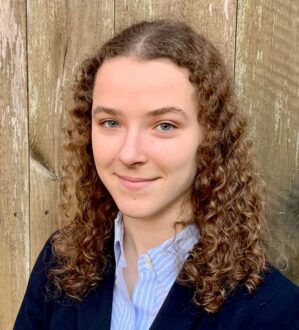 This past summer, I had the opportunity to pursue my interests in ESG (Environmental, Social, and Governance) and impact investing by working remotely as a research assistant under Dr. Yally Avrahampour at the London School of Economics. This was an incredibly valuable learning experience which gave me a closer look at how the fields of business, law, accounting, and public policy intersect in the effort to deliver a global financial system that supports and enables positive environmental and social outcomes.
This past summer, I had the opportunity to pursue my interests in ESG (Environmental, Social, and Governance) and impact investing by working remotely as a research assistant under Dr. Yally Avrahampour at the London School of Economics. This was an incredibly valuable learning experience which gave me a closer look at how the fields of business, law, accounting, and public policy intersect in the effort to deliver a global financial system that supports and enables positive environmental and social outcomes.
When I first applied to the World Research Assistantship Program (WRAP), I was interested in exploring the growth of the green bond market. After reaching out to professors from a few universities and think tanks, I met Dr. Yally Avrahampour, an Associate Professorial Lecturer of Management at the London School of Economics (LSE). Dr. Avrahampour’s expertise is in social accounting, which is the process of communicating the social and environmental effects of firms’ economic actions to particular stakeholders within society and to society at large. At our time of initial contact, he had been looking at the current initiative by the International Financial Reporting Standards (IFRS) Foundation to establish a Sustainability Standards Board, alongside the International Accounting Standards Board (IASB) — part of a wider effort to accelerate convergence in global sustainability reporting standards. I was very grateful and excited when Dr. Avrahampour expressed his willingness to take me on as a research assistant, given our overlapping interests in environmental, social, and corporate governance (ESG) and sustainable finance.
The overarching objective of our project was to better understand the standard setting process for sustainability reporting (a firm’s reporting of its environmental and social performance), identify and analyze gaps in existing reporting frameworks, and to assess the potential impacts of the IFRS’s proposed establishment of a Sustainability Standards Board on the way green bonds and other sustainable financial instruments are structured and valued.
As a research assistant, I was mainly responsible for gathering and analyzing various primary and secondary sources. During the first four weeks of the project, I wrote a literature review on the key issues in green and sustainable finance, based on an analysis of the UK Green Finance Strategy and other government documents and publications from international standard setting bodies. I also kept tabs on the latest policy and regulatory developments relating to corporate disclosure of climate-related risks.
I think my biggest takeaway from this project is that while there has been increasing attention paid to ESG and corporate social responsibility, particularly as it relates to climate change, there is still a substantial need for greater transparency and accountability in the global financial system. In the U.S., many of the frameworks relating to companies’ disclosure of climate-related risks are merely voluntary standards, not mandatory actions. There is definitely a need for further policy action and regulatory guidance on how to disclose risks posed by climate change, as well as further research into valuation and accounting methods for communicating environmental impacts in financial statements.
Even though my WRAP experience was virtual, I still found it to be an incredibly enriching experience. Dr. Avrahampour was an amazing teacher and mentor, and my work with him over the summer has greatly informed my academic (and possibly even career) interests. I think it was an especially fitting experience for my freshman summer, as it allowed me to gain valuable skills and knowledge about a particular field, but in a way that was more exploratory and perhaps less stressful than a full-time internship. I would highly encourage anyone who is even remotely interested in research, especially current first years, to apply to WRAP!


